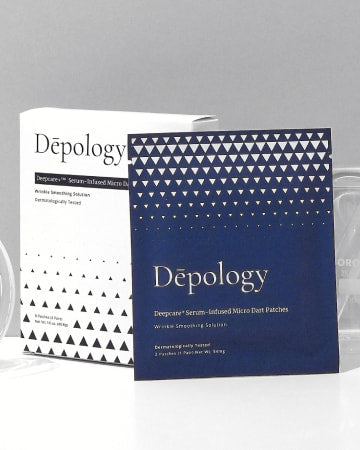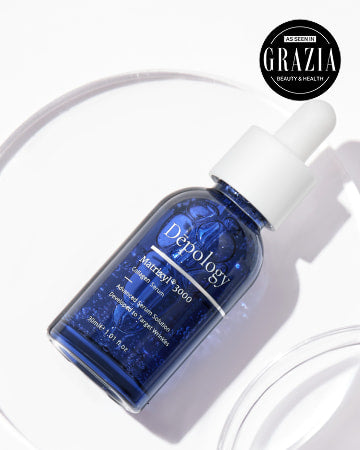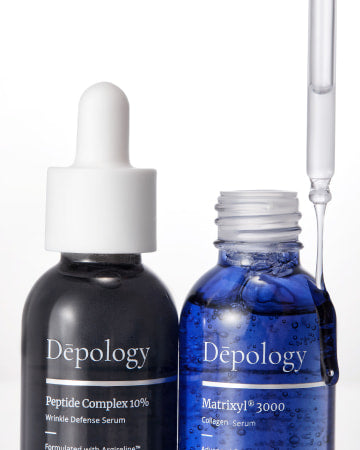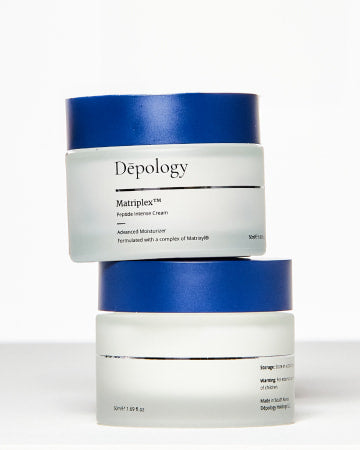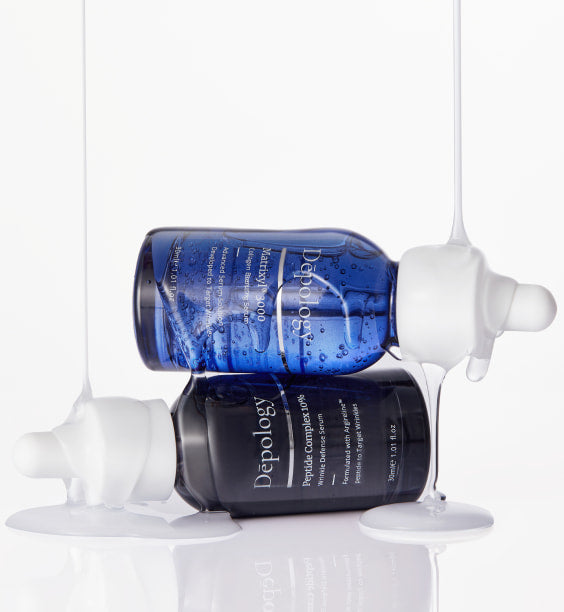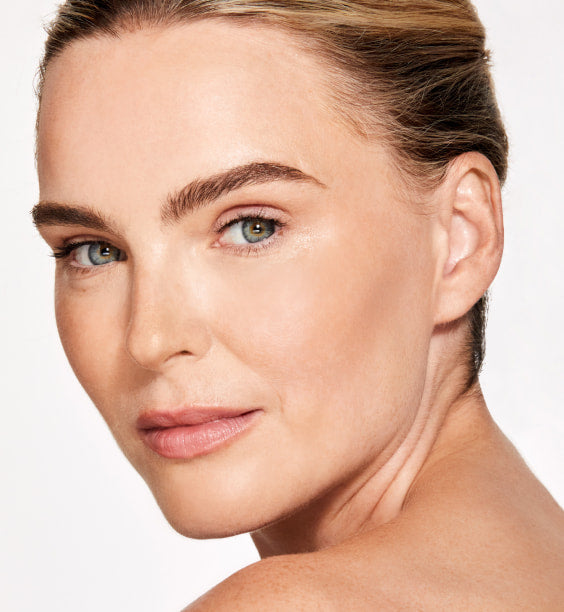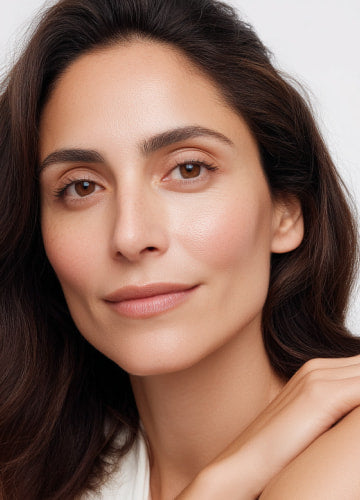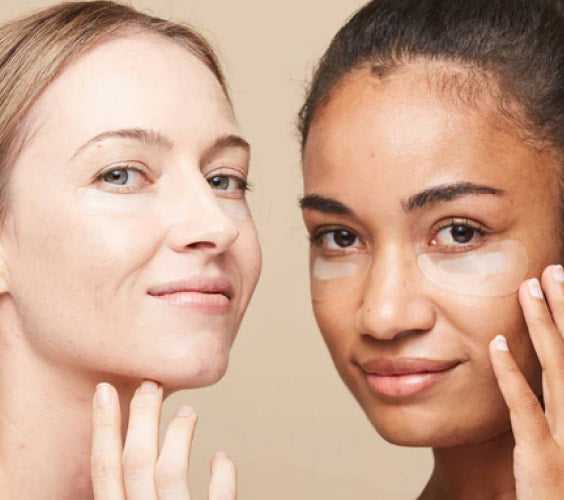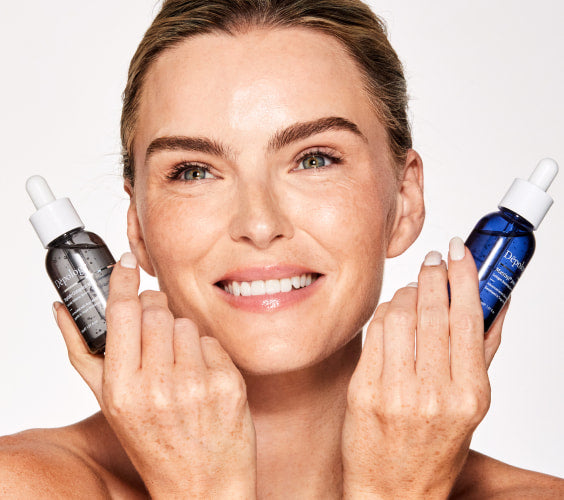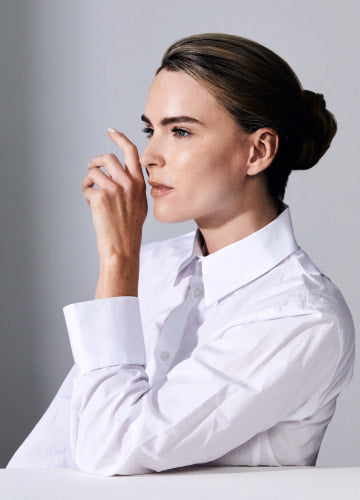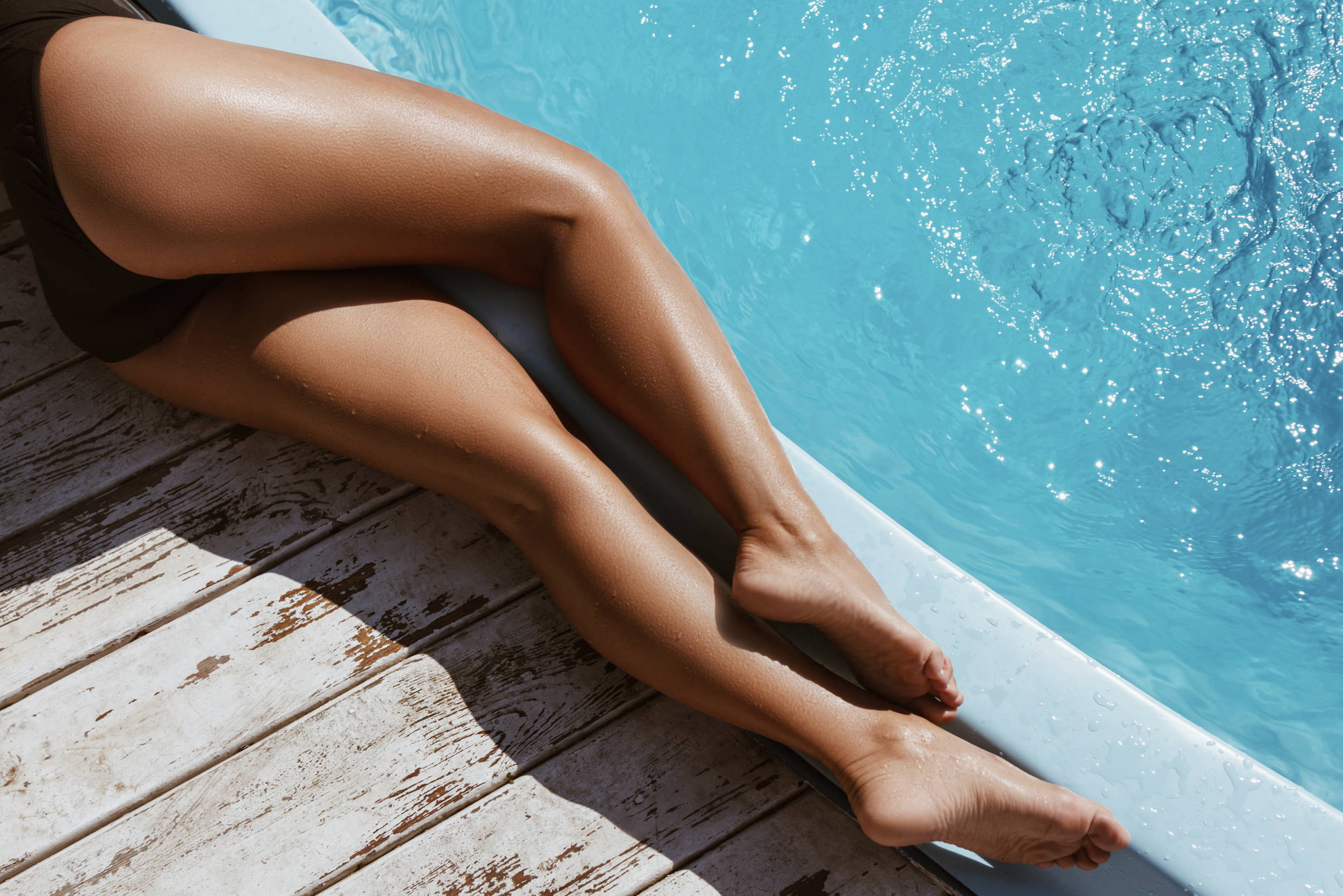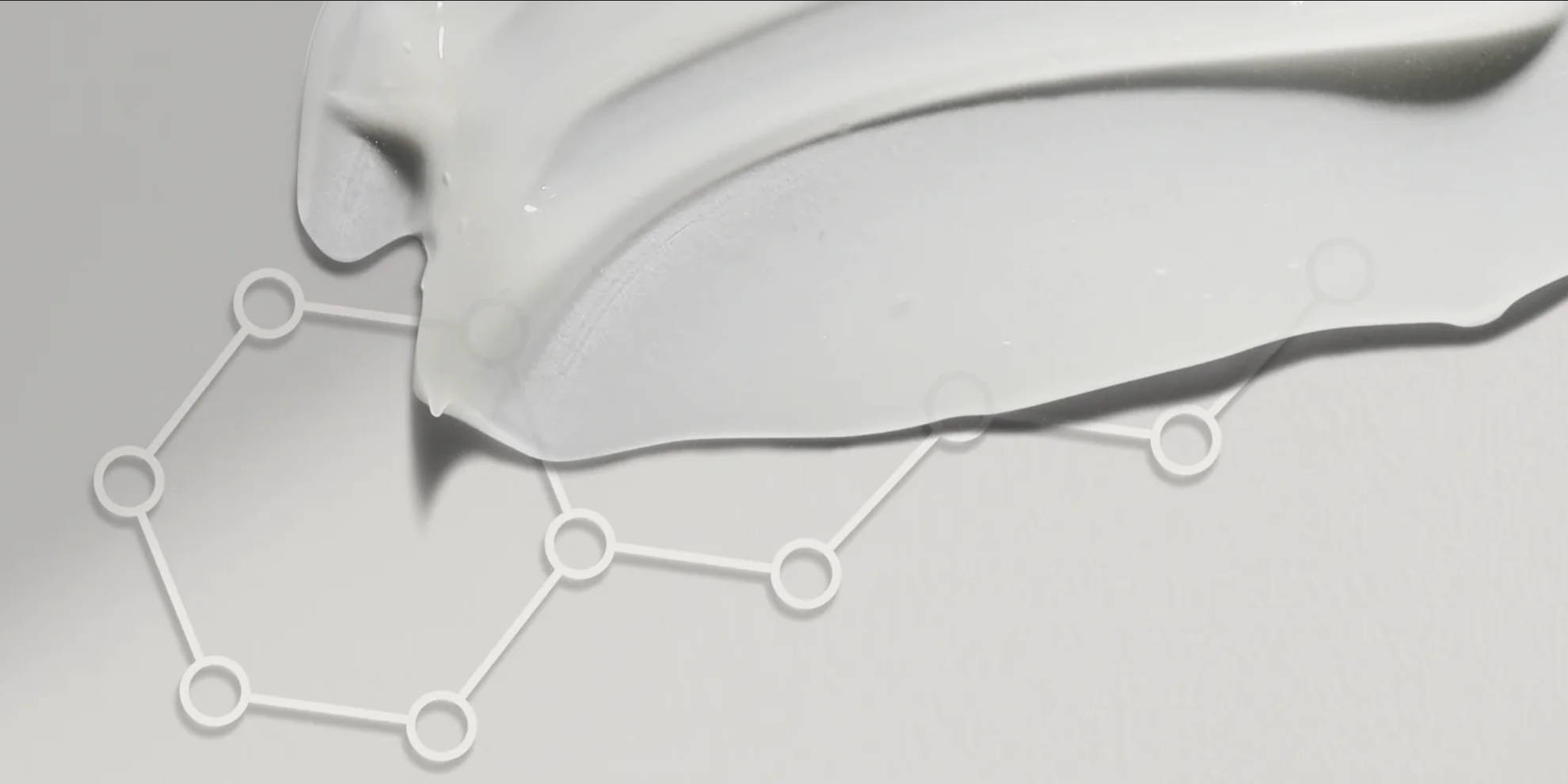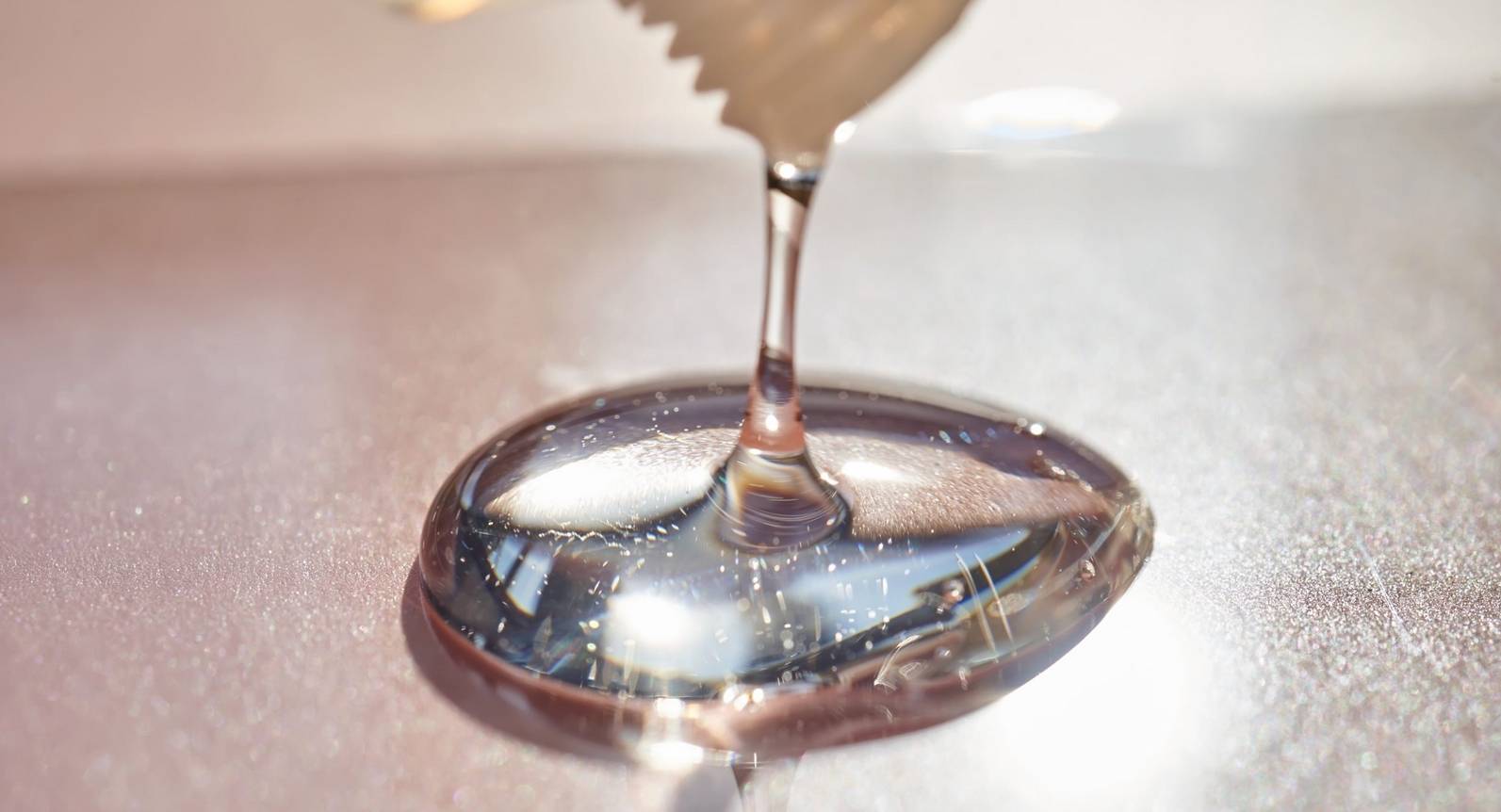
Is Snail Mucin Actually Good for the Skin? Benefits, Uses, and More
It might sound unusual, but the secretions of snail mucin from these slimy creatures have been creating quite a stir in the beauty industry. From its incredible moisturizing properties to its potential for skin repair and rejuvenation, we'll uncover the science, benefits, and everything you need to know about incorporating snail mucin into your everyday skincare routine.
What is snail mucin?
Snails produce a substance called "snail mucin," which is a thick, slimy secretion they use to move smoothly across surfaces and protect their skin from drying out. In recent years, snail mucin has gained popularity in the skincare industry due to its potential moisturizing and skin-soothing properties. It is often used as an ingredient in various skincare products, such as creams and serums, with claims of improving skin hydration and texture.
Are snails killed for snail mucin?
No, snails aren’t killed in the production of snail mucin for skincare products. Instead, the mucin is collected from live snails in a process that is intended to be non-harming to the snails. This practice is considered more ethical than harming or killing the snails for their secretion.
The process involves allowing the snails to crawl over a surface or through a mesh net where their mucin is naturally secreted as they move. Once collected, the snails are returned to their habitat unharmed. This method is typically referred to as "snail farming" or "snail mucin harvesting."
Ethical and sustainable practices vary among producers, so consumers interested in purchasing products containing snail mucin should research the brand and its sourcing methods to ensure they align with their values. Additionally, some individuals may choose to avoid products that use snail mucin altogether due to concerns about animal welfare, and there are plenty of alternative skincare options available.
What is snail mucin made of?
Snail mucin, also known as snail secretion filtrate or snail slime, is a complex substance produced by snails to help protect and repair their skin. The exact composition of snail mucin can vary depending on factors such as the snail species, diet, and method of collection. It contains a combination of various components, including:
Glycoproteins: These are proteins that have carbohydrate molecules attached to them. They play a crucial role in moisturizing and hydrating the skin.
Hyaluronic Acid: A natural moisturizing agent, hyaluronic acid helps the skin retain water and stay hydrated. It can help improve skin's elasticity and suppleness.
Glycolic Acid: This is an alpha hydroxy acid (AHA) that can help exfoliate the skin, remove dead skin cells, and promote cell turnover, leading to smoother and brighter skin.
Allantoin: Allantoin is known for its soothing and anti-inflammatory properties. It can help calm and heal irritated or damaged skin.
Proteins and Enzymes: Snail mucin contains various proteins and enzymes that may support skin repair and regeneration.
Antioxidants: The secretion may also contain antioxidants, which can help protect the skin from damage caused by free radicals.
Does snail mucin smell?
When used in skincare products, snail mucin is typically processed and filtered to remove any unpleasant odors. As a result, most commercially available skincare products containing snail mucin should not have a noticeable or unpleasant smell. The focus is on harnessing the beneficial properties of snail mucin for the skin without retaining any odor associated with it.
That being said, individual perceptions of scent can vary, so some people may detect a very faint, neutral, or slightly earthy scent in snail mucin products. Generally, any scent should be minimal and not overpowering. If you come across a product with a strong or unpleasant odor, it may be due to other ingredients or the quality of the product. It's best to check the product's reviews or reach out to the manufacturer for further information.
How does snail mucin work?
Snail mucin in skincare primarily works through its various components and properties, which can benefit the skin in several ways:
Hydration: Snail mucin contains glycoproteins and hyaluronic acid, both of which are effective at retaining moisture in the skin. This helps to improve the skin’s moisture barrier and reduce dryness.
Skin Repair: The combination of glycoproteins, allantoin, and other components in snail mucin can promote skin repair and regeneration. It can also help soothe and heal damaged or irritated skin, including sunburn, acne scars, and minor wounds.
Exfoliation: Snail mucin also contains glycolic acid, which is a type of alpha hydroxy acid (AHA). AHAs help exfoliate the skin by removing dead skin cells, which often results in smoother, brighter skin.
Anti-Inflammatory: Allantoin and other components in snail mucin have anti-inflammatory properties, which help to reduce redness and inflammation in the skin. This makes it suitable for those with sensitive skin or those prone to inflammation.
What are the different forms of snail mucin?
Snail mucin, also known as snail secretion filtrate or snail slime, can be found in various skincare products in different forms:
Serums: These serums are popular skincare products that contain a concentrated amount of snail mucin. They are typically lightweight and easily absorbed into the skin, making them suitable for layering with other products in your skincare routine.
Creams and Moisturizers: This secretion is often incorporated into facial creams and moisturizers. These products are formulated to hydrate the skin while providing known benefits such as skin repair and soothing properties.
Sheet Masks: These sheet masks are infused with a serum containing snail mucin. The masks are applied to the face for a specified period, allowing the skin to absorb the ingredient’s beneficial properties.
Essences: Snail mucin essences are lightweight, watery products that are applied after cleansing and toning but before heavier creams or moisturizers. They provide an additional layer of hydration and can help soothe the skin.
Cleansers: Some cleansers include snail mucin as an active ingredient. These cleansers aim to provide a gentle cleansing experience while offering the benefits of snail mucin.
CTA: Cica Redness Relief Nourishing Cleanser
Spot Treatments: Snail mucin can also be implemented in spot treatments designed to target specific skin concerns, such as acne scars or blemishes.
Eye Creams: Some eye creams containing snail mucin address concerns around the delicate eye area, such as fine lines, puffiness, and dark circles.
Sunscreen: Snail mucin is occasionally included in sunscreens to provide added moisture and soothing properties associated with protecting the skin from harmful UV rays.
Body Lotions: Though less common, some body lotions and creams may also contain snail mucin for its skin-repairing benefits.
What are the benefits of snail mucin for the skin?
While individual results can vary, there are several reported benefits of using skincare products containing snail mucin aside from its capabilities listed above, including:
Improved Texture: Snail contains glycolic acid, which is an alpha hydroxy acid (AHA). AHAs are known for their exfoliating properties, helping remove dead skin cells and promoting smoother skin texture.
Anti-aging: The antioxidants present in snail mucin can provide some protection against free radicals, which often contribute to premature aging. Regular use may help reduce the appearance of fine lines and wrinkles.
CTA: Power C Antioxidant Radiance Boosting Serum
Brightening: Exfoliating and regenerative properties of snail mucin can lead to a brighter complexion and more even skin tone over time.
Compatibility: Snail mucin products are generally well-tolerated by most skin types, including sensitive and oily or acne-prone skin.
Is snail secretion filtrate good for acne?
Snail secretion filtrate, commonly referred to as snail mucin, is often considered suitable for acne-prone skin. However, its effectiveness in treating acne can vary from person to person and is still limited in research.
Here's how snail mucin may be beneficial for acne:
Hydration and Moisturization: Snail mucin is known for its moisturizing properties. Proper hydration is essential for maintaining healthy skin, as it can help prevent excessive dryness and flakiness, both of which exacerbate acne.
Soothing: Allantoin and glycoproteins found in snail mucin have anti-inflammatory and soothing properties. These properties may help calm redness and irritation associated with acne.
Skin Repair: Some individuals with acne may experience scarring or post-inflammatory hyperpigmentation (PIH). Snail mucin is believed to support skin repair and regeneration, potentially helping to reduce the appearance of acne scars over time.
Gentle Exfoliation: Glycolic acid in snail mucin, a type of alpha hydroxy acid (AHA), helps exfoliate the skin by removing dead skin cells, which may contribute to acne.
Here are a few tips and guidelines for using snail mucin for acne purposes:
Patch Test: Before using any new skincare product, including those containing snail mucin, it's a good idea to perform a patch test to check for any adverse reactions.
Consistency: For best results, use snail mucin products consistently in your skincare routine. It may take some time to see improvements in your skin's condition.
Other Acne Treatments: Snail mucin can complement other acne-fighting treatments, such as benzoyl peroxide, salicylic acid, or topical antibiotics. You can incorporate snail mucin products into your routine alongside these treatments.
Consult a Dermatologist: If you have severe or persistent acne, it's advisable to consult with a dermatologist. They can provide personalized recommendations and may suggest other acne treatments that are more targeted and effective for your specific skin concerns.
Does snail mucin mix well with other ingredients?
Snail mucin can generally be used alongside many other skincare ingredients, and it often blends well with various formulations. However, as with any skincare product, always consider potential interactions and sensitivities.
Here are some factors to keep in mind when combining snail mucin with other ingredients:
Compatible Ingredients: Snail mucin is typically considered adaptable with a wide range of skincare ingredients, including hyaluronic acid, peptides, ceramides, antioxidants, and most moisturizers. These combinations can enhance the overall benefits and effectiveness of your skincare routine.
Avoid Harsh Actives: While snail mucin is known for its soothing properties, it's best to avoid using it with harsh or strong active ingredients like high concentrations of retinoids. These potent actives can sometimes be too harsh when combined with other ingredients, potentially leading to unwanted irritation.
Layering Order: The order in which you apply your skincare products matters, contrary to popular belief. As a general rule, always apply products with thinner or more liquid textures, like snail mucin serums or essences, before thicker creams or lotions.
Sunscreen: If you use snail mucin in your daytime routine, it's essential to follow up with sunscreen during the day. Sunscreen is crucial for protecting your skin from UV radiation, especially if you're using skincare products that may make your skin more sensitive.
How to incorporate snail mucin into your routine?
Whether you’re a skincare enthusiast or a novice to the industry, incorporating snail mucin into your routine is a fairly straightforward process. Here are some steps to help you do so effectively:
Cleansing: Always start with a clean canvas. Wash your face with a gentle cleanser to remove dirt, oil, or makeup impurities.
Toning (Optional): If you use a toner in your routine, apply it after cleansing and before snail mucin products. Toners help to balance the skin's pH levels and prepare it to absorb subsequent products.
CTA: Daily Glow Exfoliant Boosting Toner
Snail Mucin Application: Apply your snail mucin product, whether it's a serum, essence, or cream, to your face and neck. You can use it both in your morning and evening routines, depending on your preference.
Wait for Absorption: Give the snail mucin product a few moments to absorb into your skin. This allows it to work its magic and provide its potential benefits. Regardless of snail mucin presence, always give your products enough time to penetrate the skin.
Layering: If you use other skincare products like moisturizers, spot treatments, or sunscreen, apply them after the snail mucin has been fully absorbed. Start with products made of thinner or more liquid textures and finish with thicker creams or oils.
Sun Protection: If you use snail mucin in your morning routine, be sure to follow up with sunscreen so you have outdoor protection for the skin’s barrier.
Frequency: Incorporating snail mucin into your routine consistently is key to experiencing its potential benefits. Use it daily as part of your morning or evening skincare regimen.
Adjust as Needed: Pay attention to how your skin responds to snail mucin. If you experience any irritation or sensitivity, reduce the frequency of use or discontinue the product. Conversely, if you notice positive changes in your skin, continue using it as directed.
What are the side effects of snail mucin?
Like any skincare ingredient, snail mucin may come with adverse reactions depending on the user:
Allergic Reactions: While rare, some individuals may be allergic to snail mucin or specific components in it. Always perform a patch test before using a new product.
Sourcing Concerns: The ethical sourcing of snail mucin is a concern for some individuals. Ensure that the brand you choose follows ethical and sustainable practices.
Product Quality: The effectiveness of snail mucin products can vary widely depending on their formulation and the concentration of snail mucin used. Not all products are equally effective.
Cost: High-quality snail mucin products can be relatively expensive compared to other skincare products. This may be a determining factor for some in incorporating it into your regimen.
Slippery Texture: Some people may find the texture of snail mucin products to be slightly slimy or slippery, which can take some getting used to.
Limited Scientific Research: Despite its known attributes in the industry, there is still limited scientific research on its long-term effects and benefits. More research is needed to fully understand its potential.
The curiosity around snail mucin products has attracted the likes of researchers and doctors worldwide, including Dr. Muneeb Shah, a dermatologist known for his personable and informative presence on social media.
“At first, I was like, ‘Snail mucin? No chance!’ But it turns out, it has amazing antioxidant and hydrating ingredients,” says Shah in his video explaining his experience with snail mucin. Shah continues, “Some studies even show it helps with texture and fine lines and is perfect for [those] with dry and irritated skin.”
Can you use snail mucin during pregnancy?
Using skincare products containing snail mucin during pregnancy is a topic that has generated some concern among expectant mothers. Snail mucin itself is not considered harmful, but there are a few factors to consider:
Product Ingredients: It's not just the snail mucin that matters but also the other ingredients in the skincare product. Some snail mucin products may contain additional components or preservatives that could be a concern during pregnancy. Always check the full list of ingredients, especially when looking for new skincare products.
Skin Sensitivity: Pregnancy can lead to changes in skin sensitivity and reactivity. What may have been well-tolerated before pregnancy might irritate during this time. Perform a patch test to check for any adverse reactions.
Consult Your Healthcare Provider: It's advisable to consult with your healthcare provider or dermatologist when considering new skincare products during pregnancy. They can offer personalized recommendations based on your skin's unique characteristics and any specific concerns you may have relevant to your situation.
Avoid Harsh Ingredients: During pregnancy, it's generally recommended to avoid harsh skincare ingredients like retinoids (such as retinol and tretinoin) and salicylic acid in high concentrations. Snail mucin itself is unlikely to fall into this category, but it's important to be cautious about additional ingredients.
Fragrance and Essential Oils: Some skincare products, including those containing snail mucin, may include fragrances or essential oils that can trigger skin sensitivities or allergies. Pregnant individuals may be more prone to these reactions, so it's wise to choose fragrance-free or essential oil-free products.
Hormonal Changes: Pregnancy hormones can alter the way your skin reacts to skincare products. What worked well before pregnancy may not have the same effects during this time. Be attentive to how your skin responds and make adjustments as needed.
Conclusion
Snail mucin may have started as an unconventional skincare ingredient, but its impressive benefits have solidified its place in the world of beauty and self-care. The natural secretion offers a unique blend of hydration, repair, and rejuvenation for your skin.
Whether you're seeking to soothe irritation, reduce the appearance of scars, or simply enhance your skin's natural glow, snail mucin could be the secret ingredient you've been searching for. Embracing the positive effects of snail mucin might just be the transformative step your skincare routine has been craving.

